US seeks to whitewash terrorists' gas attack in Syria: Russia
Russia has rejected fresh US accusations regarding a chemical weapons attack in Syria's Aleppo, saying Washington is trying to whitewash terrorists' gas attacks and distract public opinion from American crimes.
US State Department deputy spokesman Robert Palladino claimed Friday that Moscow and Damascus were behind the Aleppo gas attack on November 24 and cautioned them against "tampering with the suspected attack site."
He also claimed that Russia and Syria had "falsely accused the opposition and extremist groups of conducting a chlorine attack in northwestern Aleppo."
The Russian Defense Ministry denounced the allegations, saying it has "irrefutable evidence of the use of munitions filled with toxic agents against the civilian population" in the incident.
"The statement by the US State Department is nothing more than an attempt to whitewash the international terrorists operating in Idlib and associated with the White Helmets pseudo-rescuers, who have put their Western patrons in a bad spotlight with their provocation," the ministry said.
It said the deliveries of chemicals to militants have usually been “synched” with Washington, warning that the US is ready to conduct another large-scale missile strike in Syria under the pretext of the alleged use of chemical arms by the Syrian government.
The Russian Defense Ministry further said the "hysterical" US statement is meant to divert the public attention from the killings of civilians by the US military in eastern Syria and hinder an "unbiased investigation" into the Aleppo attack by the Organization for the Prohibition of Chemical Weapons (OPCW).
According to Syrian media reports, more than 100 people were injured as a result of the November 24 attack, which is believed to have been launched from an area controlled by al-Nusra Front terrorists in Idlib Province.
Immediately after the attack, Damascus called on the OPCW to send a fact-finding mission to Aleppo.
Russian experts say they have recovered samples of soil and fragments of buildings to determine the toxic agent used in the assault.
The Russian Defense Ministry said over the past six months it has been informing the public about deliveries of toxic chemicals to terrorists and the White Helmets by the security services of Western governments.
Syria surrendered its entire chemical stockpile in 2013 to a mission led by the OPCW and the UN.
The US has already attacked Syrian army and government positions following alleged chemical spread which Washington has blamed on Damascus.
US spy plane spotted over Syrian coast
On Friday, a US Navy anti-submarine patrol aircraft Poseidon P-8A was spotted conducting a surveillance flight near the coast of Syria, where Russia's Hmeimim airbase and Tartus naval facility are situated.
According to the IntelSky flight tracker, the plane departed from the US Naval Air Station Sigonella in Sicily on Friday and flew for more than three hours over the international waters of the Eastern Mediterranean along the Syrian coast.
Russia has deployed advanced S-300 air defense and radar systems in the face of frequent aerial invasion by the US and Israel in Syria.
S-300 should remain in Syria: Opposition figure
On Friday, a Syrian opposition figure said the Russian S-300 missile defense systems should remain in Syria.
"If they are good for Syria, for sure we would like them to stay there," Hadi al-Bahra, a representative from the so-called Syrian Negotiation Commission (SNC), told Russia's Sputnik news agency.
"We need to look at the cause. If they are there to protect the Syrian territories from enemies, airstrikes, then they are positive," he added.
In early October, Moscow finished delivering the S-300 systems to Damascus in a bid to bolster Syria’s air defense capability
The S-300 missile defense system – known as one of the most advanced in the world -- is capable of striking short- and medium-range ballistic missiles, cruise missiles as well as tactical and strategic aircraft.
VIDEO | Australians rally for Gaza ahead of Christmas festivities
VIDEO | Attacks on Sana'a
Iran reports further drop in annual inflation rate in December
Israel indicts two settlers over suspected spying for Hezbollah
Iran: US airstrikes on Yemen war crimes, violation of international law
Yemeni armed forces down F-18 fighter jet, repel US-UK attack: Spokesman
Iran warns against US-Israeli plot to weaken Muslims, dominate region
VIDEO | Public uproar in US against Israeli regime


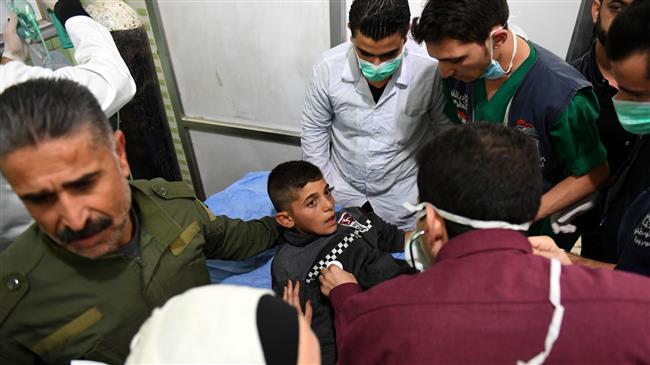


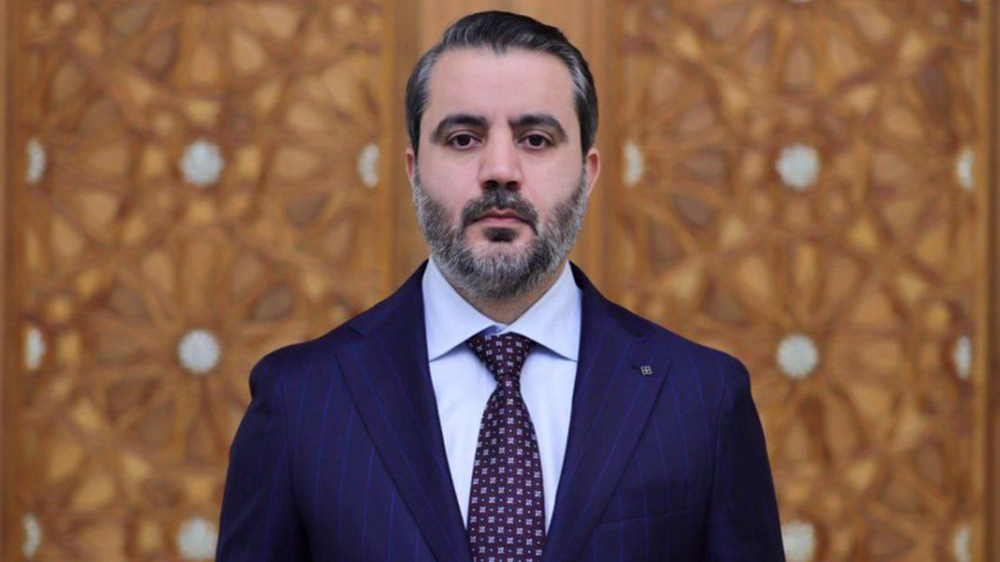

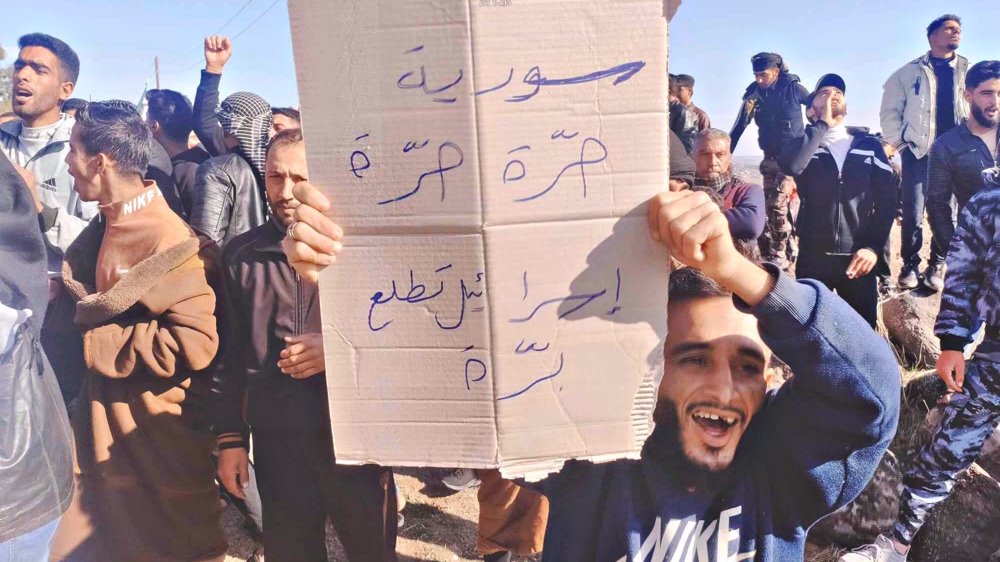





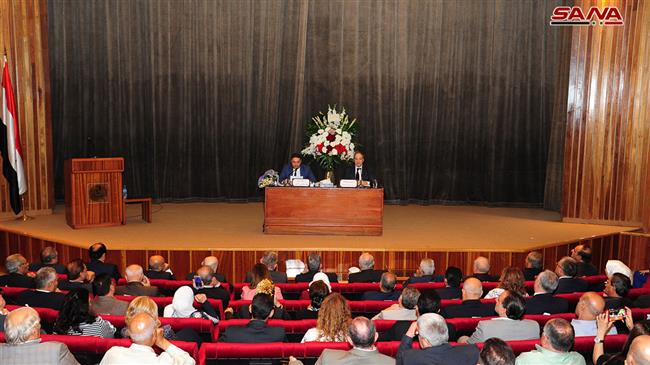
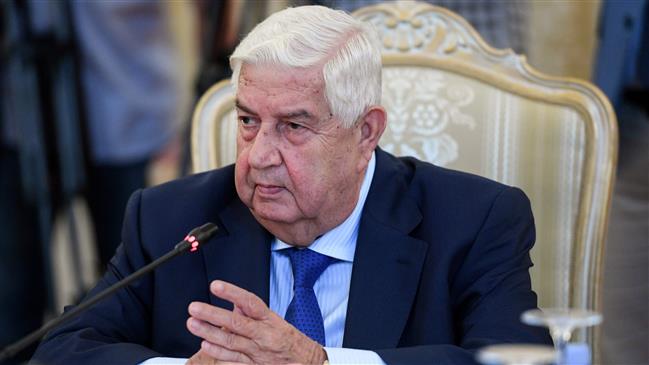
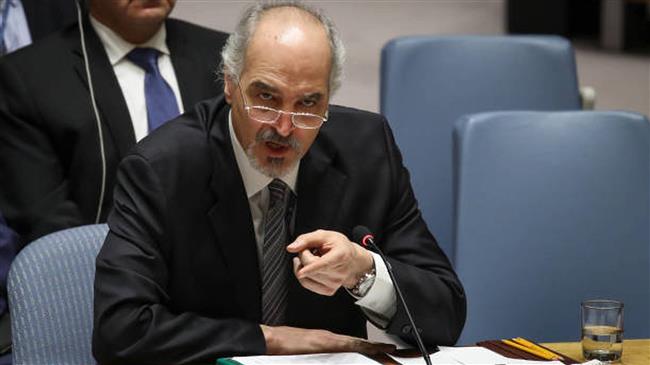

 This makes it easy to access the Press TV website
This makes it easy to access the Press TV website